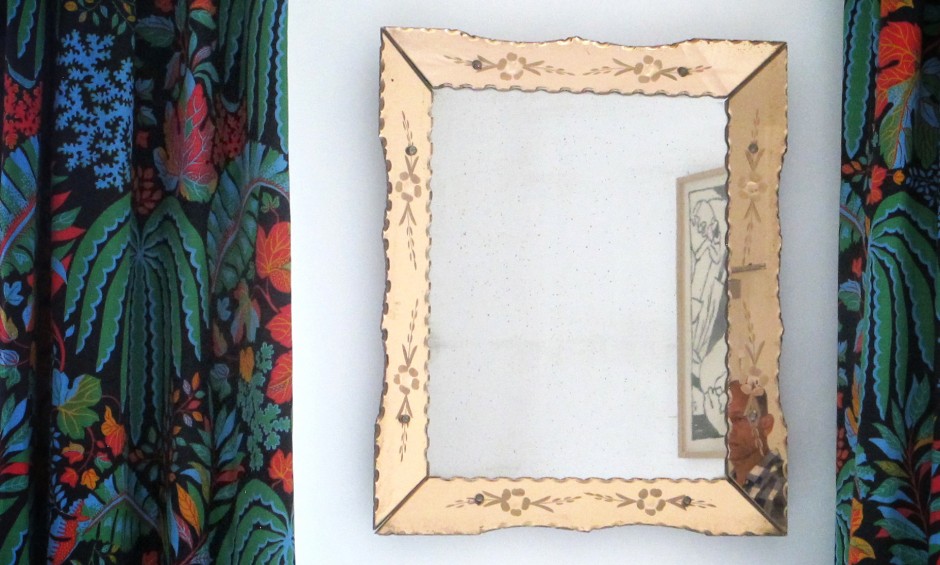‘Alas! Old Paris is disappearing at terrifying speed’, lamented Honoré de Balzac as the city’s Mediaeval streets were reduced to rubble and Baron Haussman’s brave new boulevards became a reality. Paris has changed and evolved as much as any large city, and continues to do so, but many visitors seem reluctant to take in its present, instead succumbing to a sense of nostalgia, a grasping for golden eras. The city’s hotels have long traded on this yearning, summoning up a rich stew of Parisian wish-images (to borrow from the city’s great chronicler and critic, Walter Benjamin). Hotel du Temps, part of the latest wave of Parisian reimagining, jolts us, ever so gently, from this melancholic dream-state. Yes, it’s part of a hipsterfication hunta that’s transforming the formerly working class north-east, and, yes, it also knows how to evoke a fantasy or two of its own. But there’s a depth, texture and warmth here that’s born out of genuine creative curiosity and fluid, fertile collaboration. Just as importantly, for anyone coming to stay, it really does feel like ‘home’. Its 23 rooms are winsome, wistful, low-fi; each has an individual mix of brocante finds, lime-washed floors and beams, along with gleefully unmatched textiles in deep greens and pale blues. It’s a look that is beguilingly indeterminate, a little bucolic, a tiny bit Scandinavian, but also utterly, totally Paris right now. We talk to first time hotelier, Yoan Marciano about how Hotel du Temps came to be.
What was your background? How did you come to create Hotel du Temps?
It was very hardcore business: first international business school, then a year at Sofitel and after that I started to manage family businesses, for almost eight years. Then I took over this hotel. At first, I started to make some changes, and I thought no, no, no. It was a very classic hotel, very old, so I decided to wait a few years, to try and make it something I liked and also to have the money to do it.
Of course, it’s much better to do it all at once, to make a complete transformation…
Right. In September, 2012, I came back from holiday and I said, ok, now let’s do it. Properly, seriously. That’s why I changed everything: the name, everything. If people ask who was running the hotel before it was Hotel du Temp, I tell them I don’t know who the owner was! It’s that kind of transformation.
So, your designer was Alix Thomsen. How did you come to work with her? Her Thomsen label shirts and dresses were a favorite Paris purchase of mine, I loved their unfussy, playful style, not to mention the shop itself… I always ended up spending hours in the change room having crazy chats with the staff. Were you part of the Le Clique and Le Baron outfit too?
No, but they are friends of mine. I really like this team because they completely changed the thinking in Paris about going out, bars and clubs. I really liked their spirit. I had done a decorator ‘casting’, I met with classic designers and I didn’t like what they showed me. So Lionel Bensemoun, the founder of Le Clique, asked me to meet Alix, his girlfriend.
What didn’t you like about the other designers?
Because I had waited a long time for this… I didn’t want to make a mistake. I didn’t want to be a hotel like the others, I didn’t want the easy way. They were the most famous designers at the time. They showed me their proposals and they were very excited because the neighbourhood is boiling, the idea of renovating a hotel in the 9th was a big thing for them. I was not convinced about what I saw, but they were really the best of Paris, the best people.
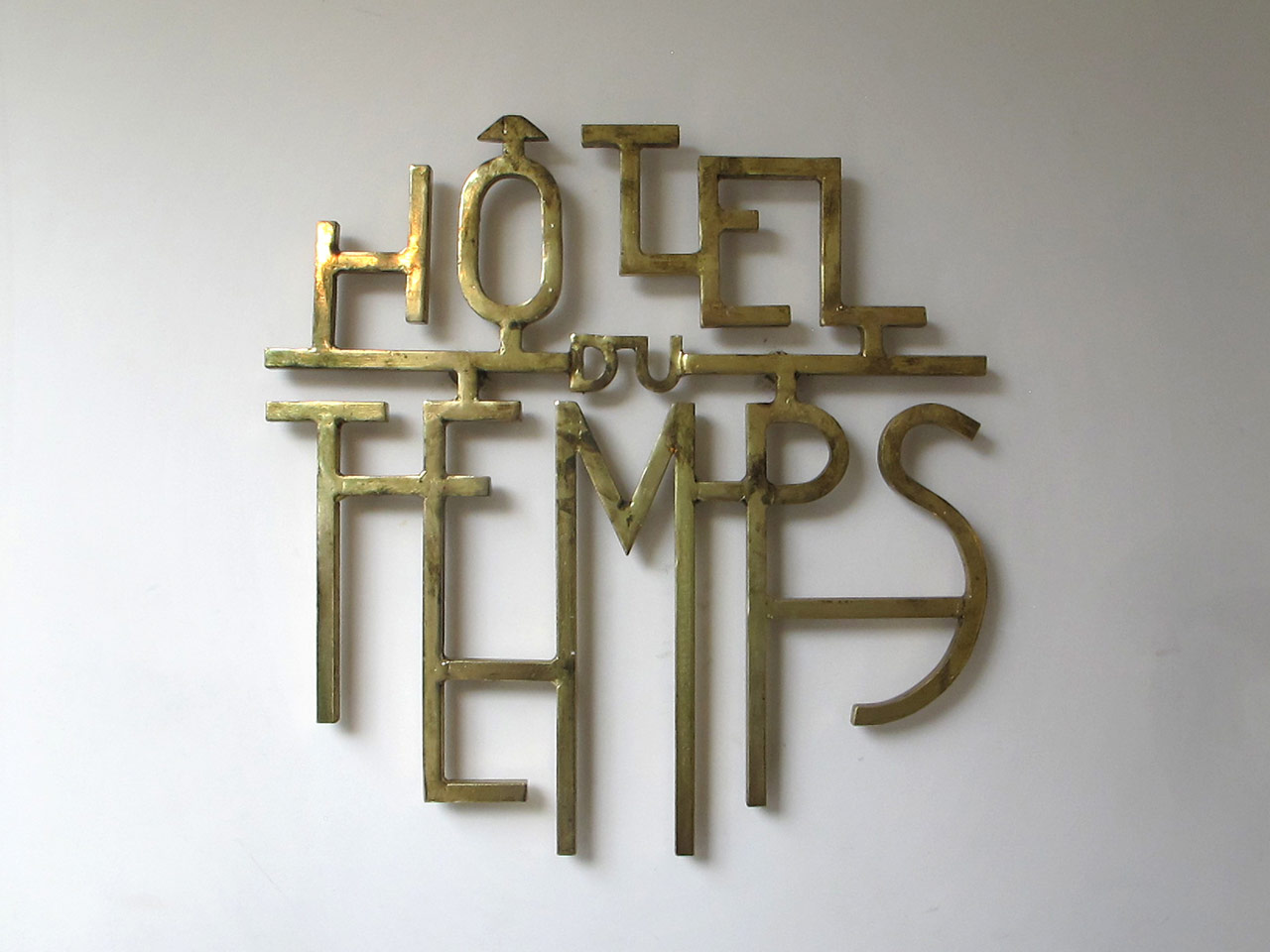
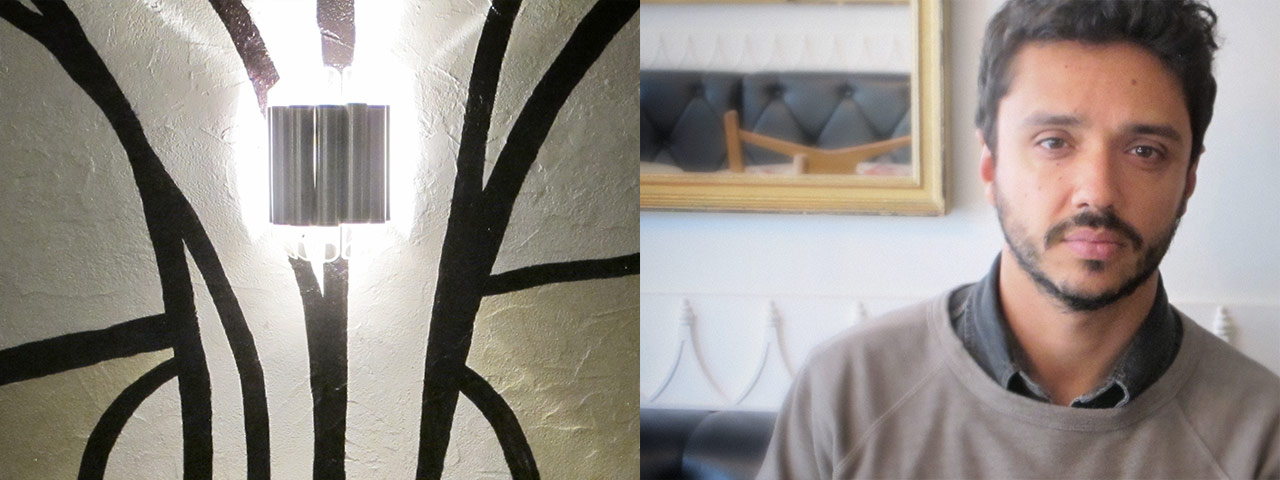
So what happened when you met Alix? Her way of working is very conceptual, looking at her campaigns, the Thomsen shop…
I had said to Lionel ‘but she’s designing clothes, this is a building’. Lionel said, please, just meet with her, so I said, ok, let’s do it. Alix came here with her friend Laura Léonard and said that if she was to do the project she wanted to work with Laura as well, because they are complementary.
What is Laura’s background?
Laura is more architectural; she has worked as a interior architect but is also a scénographe, a set designer; she does this for theatre, music industry productions.
What else happened at that meeting?
They didn’t have any paper or anything, they said ‘I see this…’, ‘I think this…’. I was shocked as I had meetings with designers who came along with full 3D models on laptops and these two came with nothing but an iPhone and said ‘I imagine this…’.
But ‘Imagine this..’ is a good way to work, no? Very fluid, so much possibility?
It was very funny. They said you give us the budget and come and do the buying with us so you can understand this too.
Did you project manage as well?
Yes, as I said, I have a strong business profile. But they began to teach me how to have a creative, artistic way of thinking and it changed my life completely. It opened me up to so much that I didn’t know before.
So this was an instinct you had right from the start of the process?
Yes. I call them my lucky stars, because when I met them everything began, and because I was very lucky that I had chosen the right team. Laura told me, you’re a good liar, because we met you we thought you were like us, a creative, but I was totally business.
Who else came on board?
I also work with Jade Lombard, a graphic designer who did our logo and the website. I met her in a restaurant around the corner and she said ‘I’m so excited about your project’; I read about her work and thought she was really amazing. We still work together, she handles all the art direction and visual communication for the hotel.
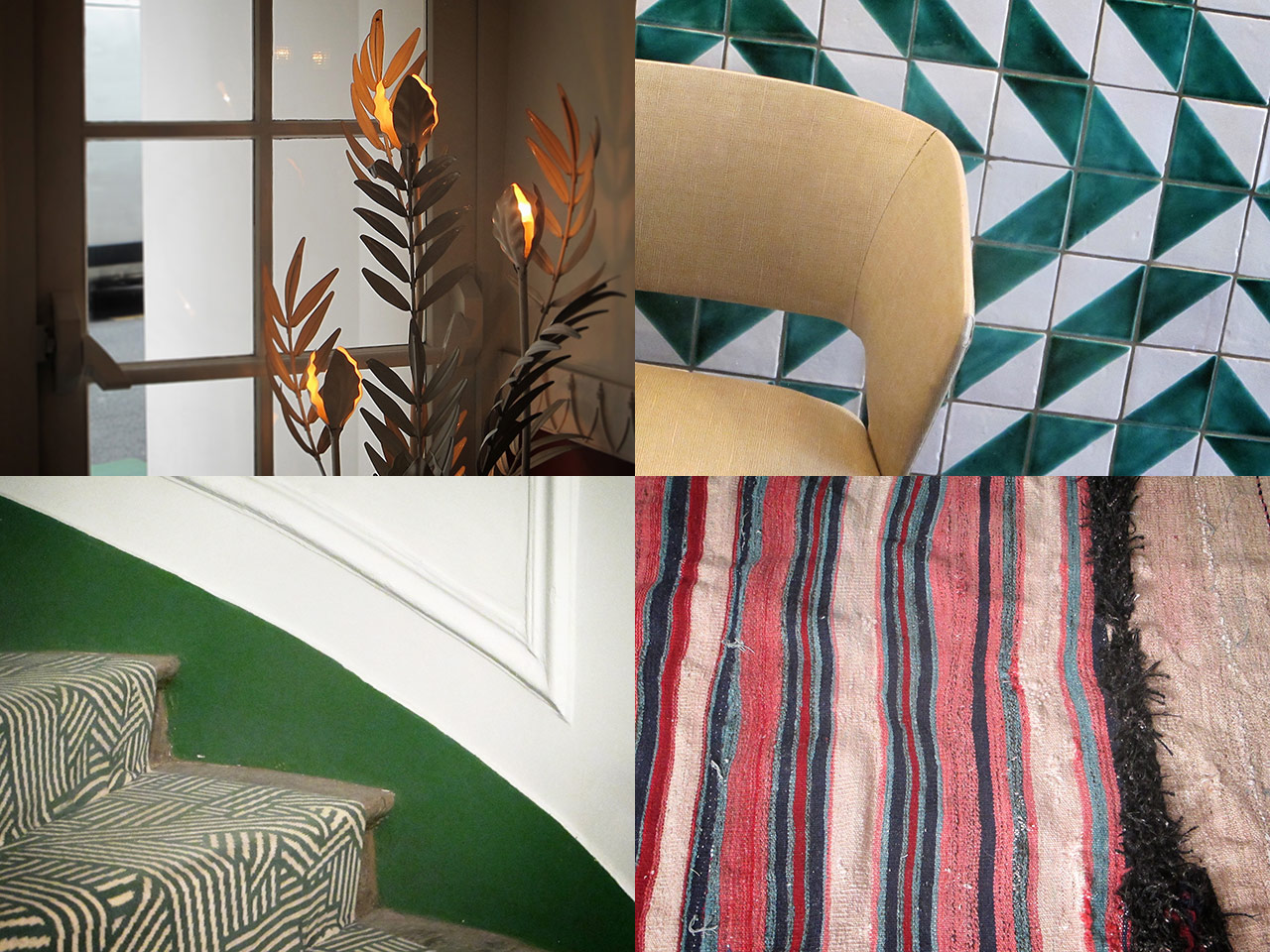
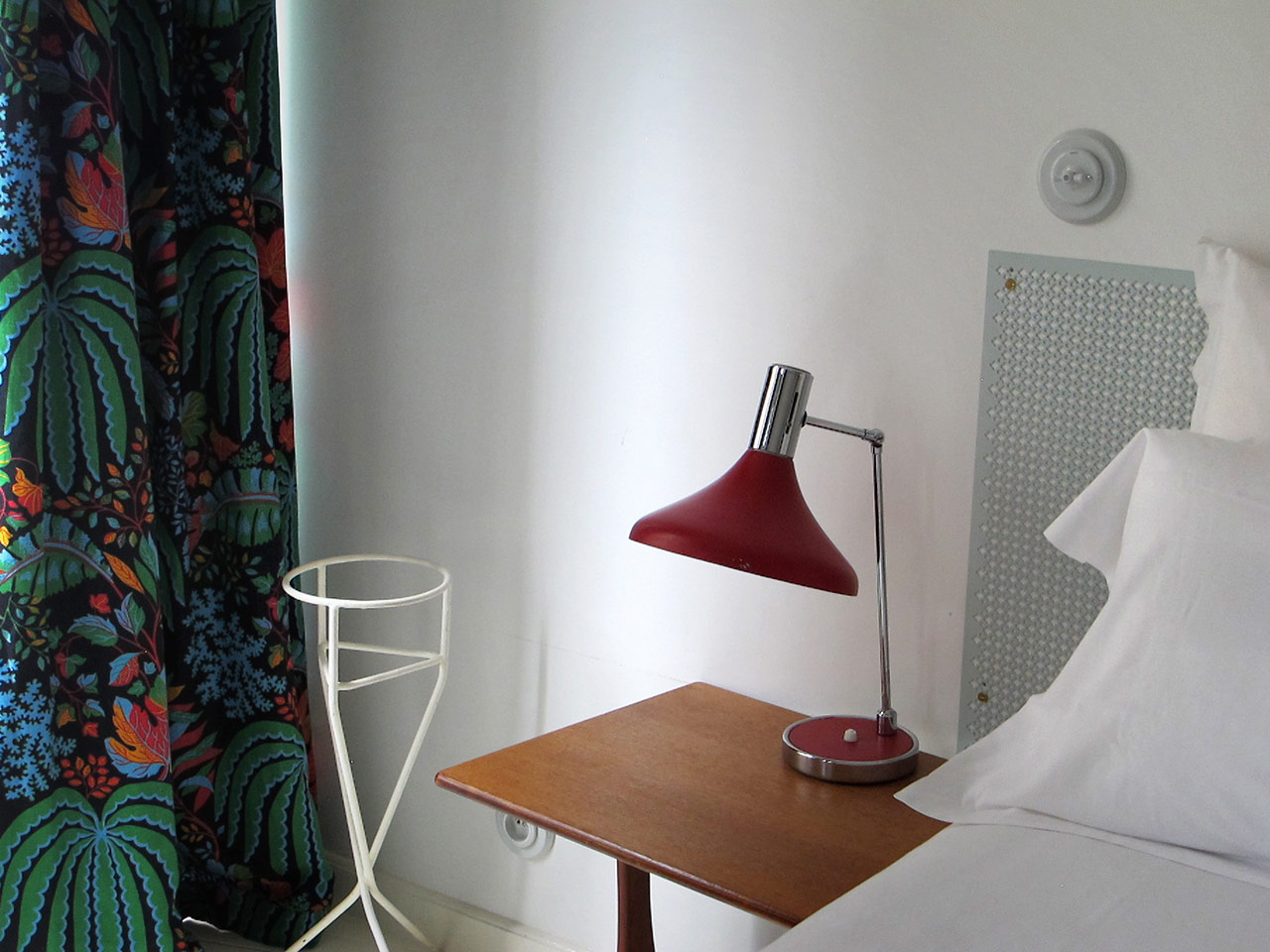
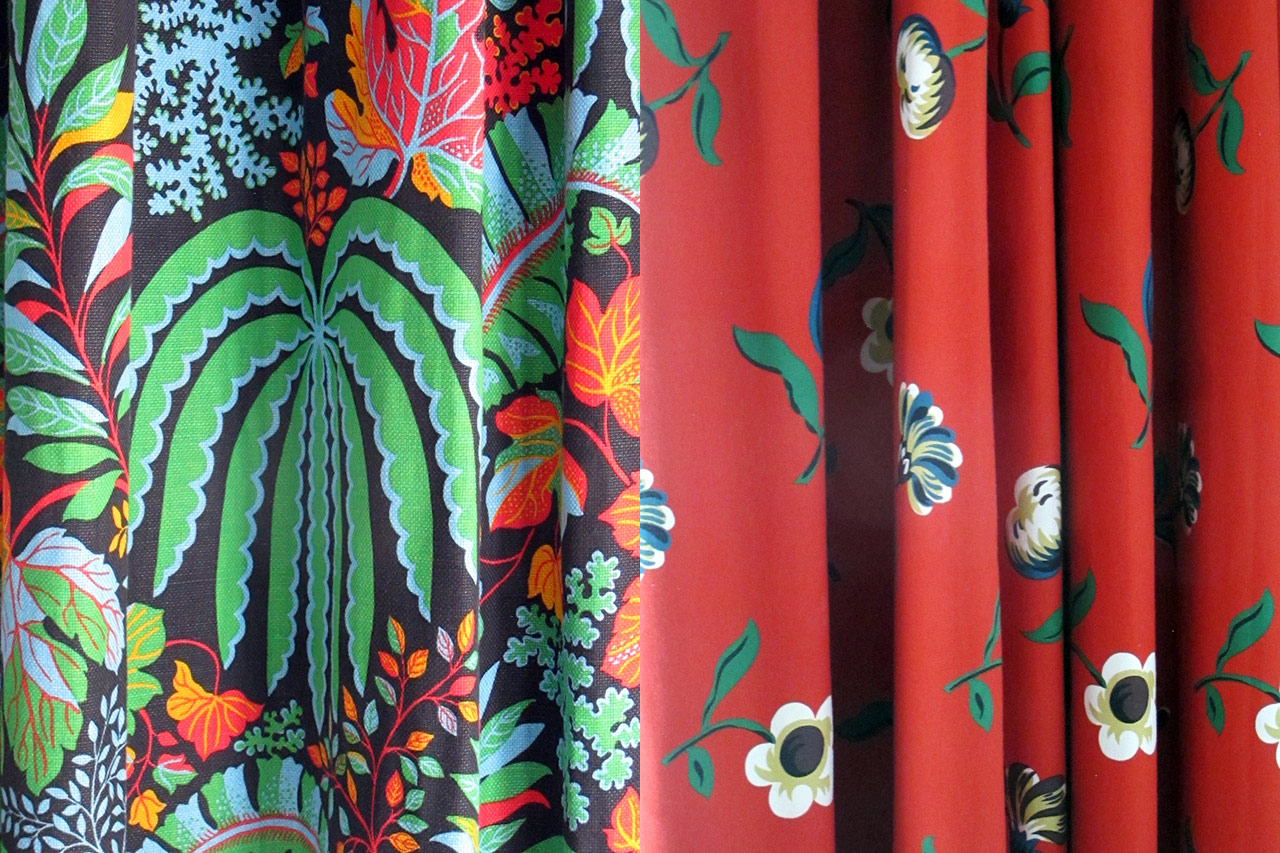
The identity is beautiful! Who did the paintings, they are all by the same artist, right?
Alix introduced me to the guy that made all the paintings, his name is Raphael Alterio. We created a very strong team: Alix, Laura, Jade, Raphael and me. We all felt there was something very strong happening with us together.
Tell me more about your launch, the ‘wedding reception’ happening and short film…
Yes, that was it. The renovation was not finished, the floors were still like there had been a war. Alix also needed to introduce her new collection, so we said let’s just do a party, something strange and crazy. We worked with people from the theatre, a famous writer, poets, film directors, all the artistic areas you can imagine. There were actors in the rooms, people were doing comedy in the stairs. It was completely a mess. People were calling up their friends saying ‘I’m at this party in a hotel’, it was totally le bouche à oreille – word of mouth – and before long the street here was completely full. Thousands of people, police, everyone trying to get into the hotel.
You must have realised at that point that you’d really done something right…
I had my Hollywood hour! Right from then, there was a lot of luck, good press from all over the world, it has been a very good beginning.
I’m not so sure it’s luck, I think people recognise something that has a genuine aesthetic, one that isn’t manufactured or clichéd; people are really hungry for that, don’t you think?
Yes, a lot people in the hotel business are very curious, and they come here, to find out what’s happening. I think it’s a small hotel, it’s nothing that special, but they really want to understand. It’s funny, it’s kind of magical.
That magic is what I’m trying to discover. How you create culture, articulate a vision, rather than regurgitating what’s already been done before.
I think in Paris, Hotel l’Amour, for me was an example of this too. They bought a hotel in the 9th, this was a sleepy area then, then they created a neighbourhood around them. It was always full of people, always full of press, this was an example, I said ‘Wow, how can you take a just a building and create so much light in the world?’
How would you yourself describe the hotel’s style? What makes it unique?
I think the hotel is half its decor, and the creativity of that, and half the atmosphere and human aspect. This is very important to say because I’m working very hard at that. I’m here all the time, I want to be a face for the hotel.
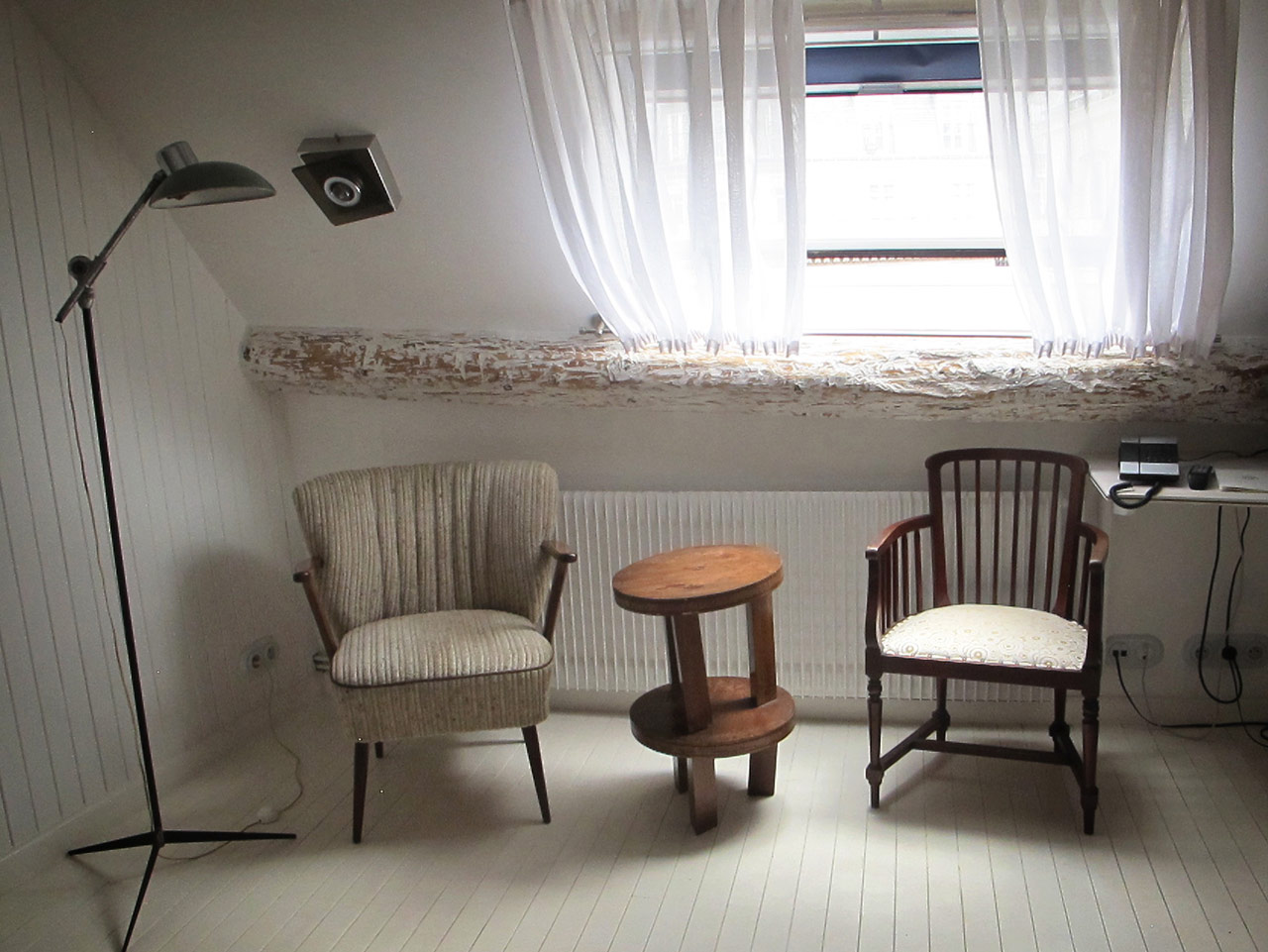
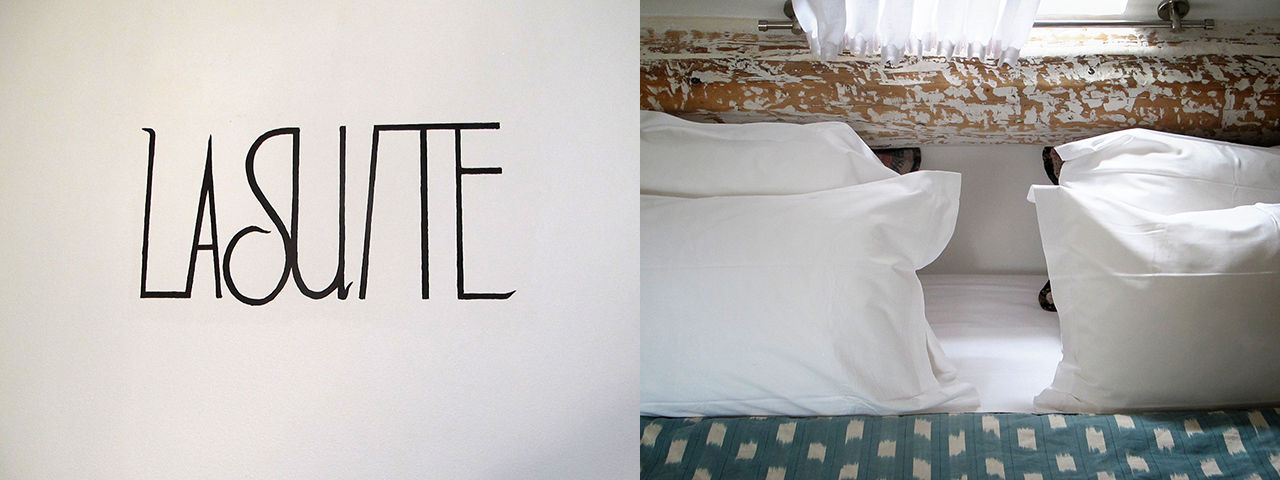
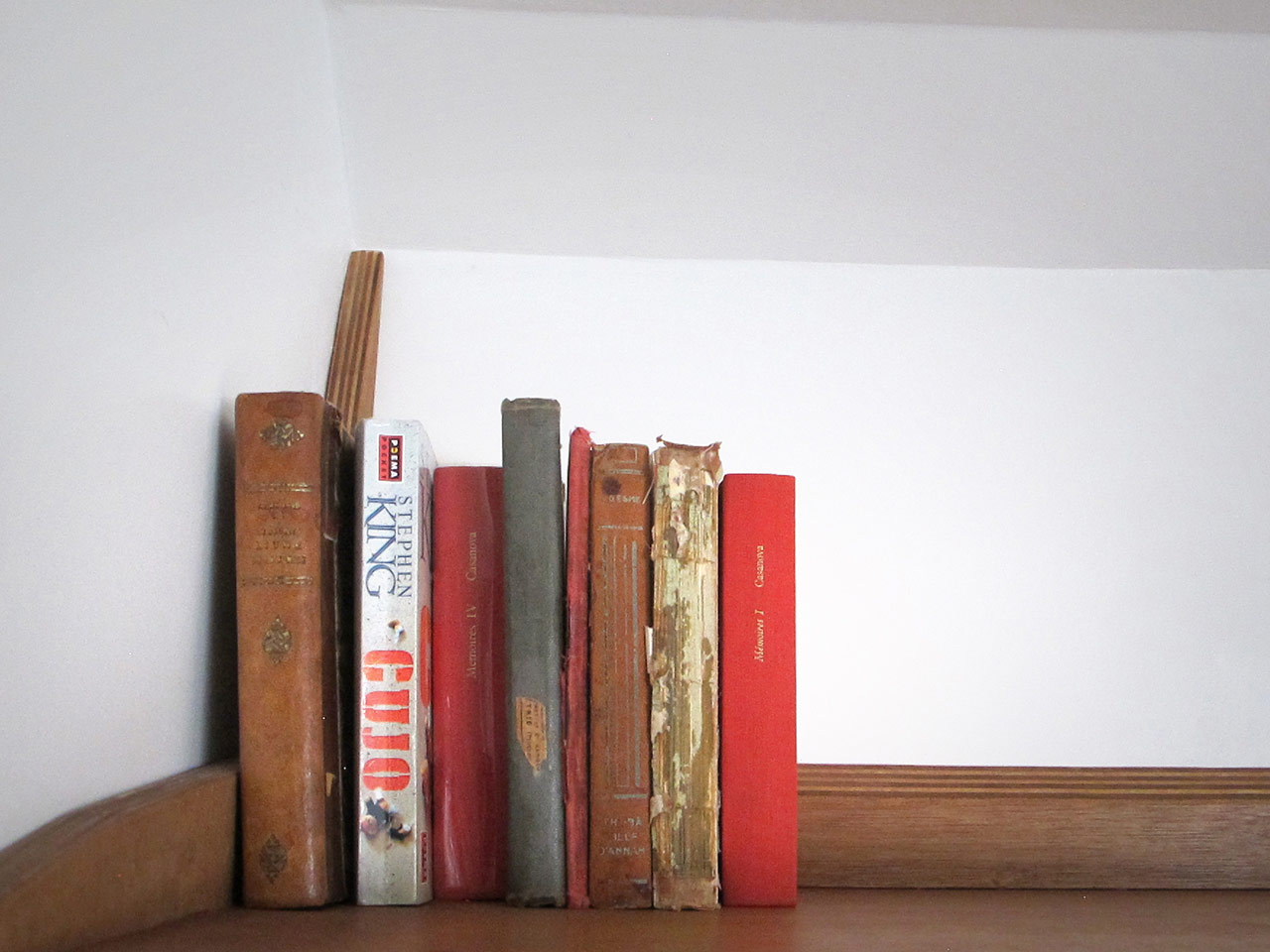
What does this mean on a day-to-day basis?
Now we have many return guests who come fifty percent for the hotel, fifty percent to be with me. Have a coffee, you know. My staff are very social too, it’s like a house atmosphere. I love guesthouses, small hotels, and I wanted to create the same. I’m not shy, I ask everyone ‘Did you sleep well’, I say, ‘No, don’t go there, I’ll walk a little with you, show you something I know you’ll like’. When I travel, this is what luxury is to me.
True luxury, rather than manufactured luxury?
Yes, like when I go to a restaurant, I don’t care about price, I care about the people, the contact, the spirit. If I go to a restaurant and I see a chef with, you know, an old shirt but he comes to me and says ‘Today I received a good fish, I can make this, or this for you’, to me, this is luxury. It’s not complicated, but it’s very complicated to achieve. It’s very subtle, very difficult, that balance.
It’s got to come from somewhere very real, I think.
Guests leave comments about us like ‘it’s a small hotel but they have palace intentions’ – this for me is a big compliment. This is what we have tried all along to create. We are very devoted to the guests, we book trips, make calls for them, this or that. When I have a meeting with my staff, I always tell them ‘here the word NO doesn’t exist’. If someone calls reception at 1am and says I want a plate of pasta, we perhaps pretend to have a kitchen, we say ok. Then they’ll find somewhere in the neighbourhood to get pasta and run and get them a plate of pasta.
Who is your typical guest?
Most of the guests have very artistic profiles, we work a lot with people from the music industry, fashion, the arts, I’d say eighty percent.
This has become a lucrative mini-industry in itself, the international creative class travelling for work, but they are a hard audience to please.
Exactly. They don’t want your standard fancy things. Maybe it’s a cycle, but for the moment, the trend is to go to smaller, ‘cool’ places, even if you have a lot of money. I have so many people stay here that work for Chanel, you know, the big marques. And I say to them but you have the budget to go to the Bristol or Le Meurice, and they say ‘I don’t need that, here I have breakfast with twenty people, here it’s fun’.
I know from experience that constant travelling can be a lonely life, even though it seems glamorous.
They travel all the time, and they feel alone, far from their family. So they like to be here, because we are like a big family.
The area has really undergone a massive transformation in the last ten, perhaps even the last five, years, hasn’t it?
The area has changed a lot, a lot, a lot. You know, my father said to me, when I first came here, why don’t you take an apt next to the hotel it will be so much easier for you to work. And I said, even if I had an apartment for free, I don’t want it. Now it’s ten times the price – and I live here!
This is part of a bigger thing, no? Paris as a whole has really redefined, reimagined itself in the last ten years, or perhaps the last five?
The last five years have been a big revolution. You have so many people doing so many things. Also the economic crisis, people work hard in companies but they’re not appreciated. So they prefer to open their own business. The best restaurants in the area, their owners are often ex-big business, they used to work for banks, as lawyers, now they own restaurants.
What are your neighbourhood highlights?
The first would be Le Richer.
Oh yes, I love Le Richer… I’ve eaten there twice this week.
The owner is an amazing guy. When he talks about food, it’s a passion. He comes to your table and says, ‘Hey, I tried this on the menu, don’t have it… this is the season for, say, this mushroom, so have it instead’. Fresh produce, simple things, very affordable. It’s the key of his success, he knows it. Also Abri, a little bistro on rue du Faubourg-Poissonnière, and the Japanese place, real Japanese, Ito.
Tell me about what goes on in the basement…
This is for small private parties, but if guests want to go downstairs and drink and put songs on and dance, they can, because it’s soundproof. Last Fashion Week, we had some guests from Nike, five or six girls, it was raining and they didn’t want to go out, they were sick of all the fashion week parties. So I said go downstairs, switch off the lights and put on your iPod. The next morning I saw them at breakfast and they were bleary eyed, a mess, and I said what happened? And they said we danced until 3am downstairs!
Hotel du Temps was one year old in June… bon anniversaire! What’s happening from here?
It’s too early to imagine anything else at the moment. Next year perhaps. But in the meantime we need to keep things up at the same level they are. And be humble!
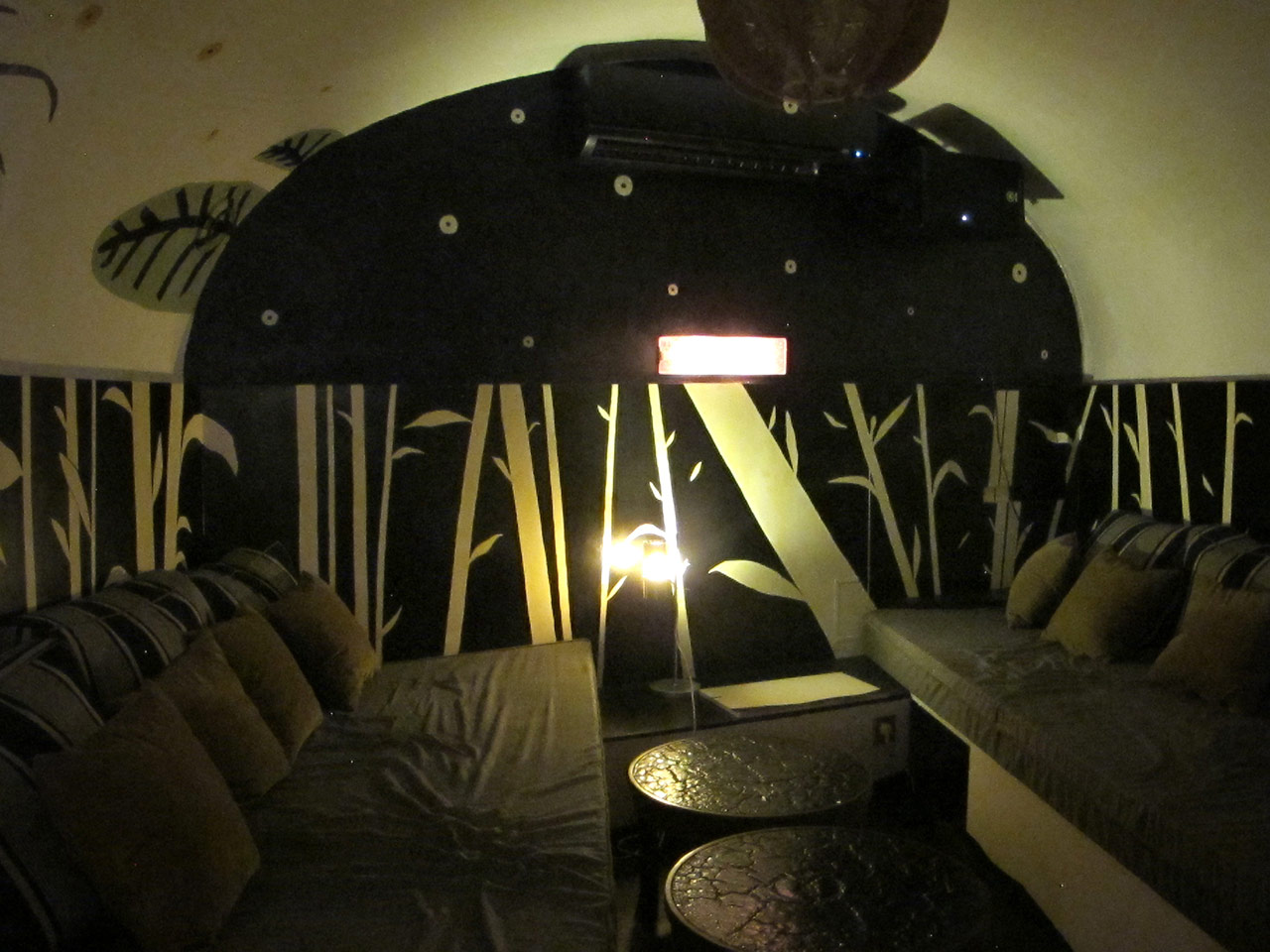
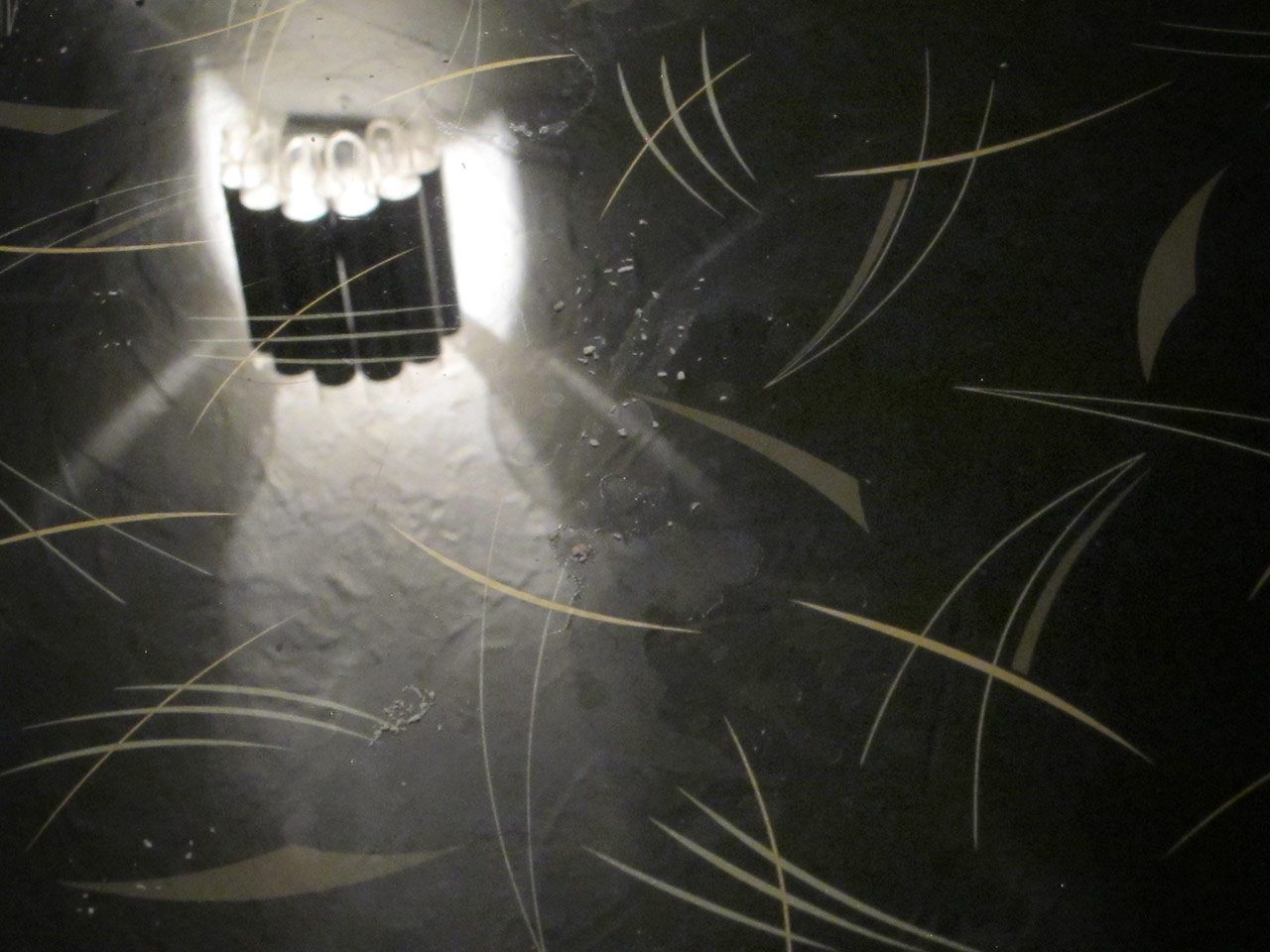
- Hôtel du Temps
- 11 rue de Montholon 75009
- Paris, France
- hotel-du-temps.fr


